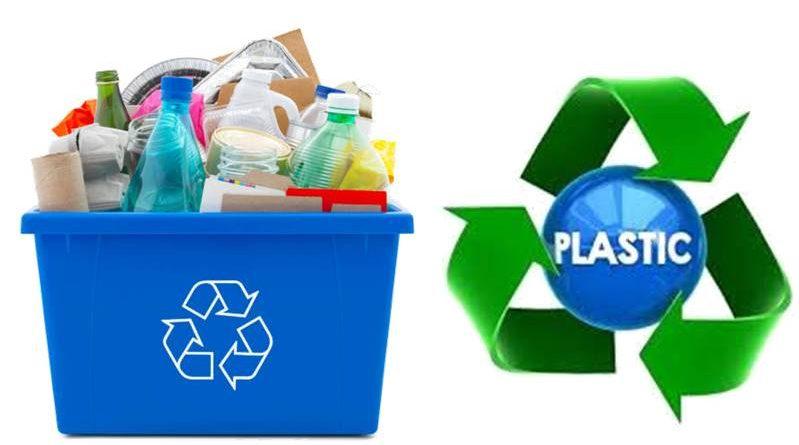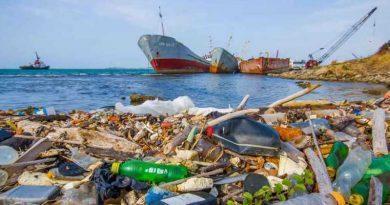Plastic recycling is a “failed concept” – Greenpeace
Plastic recycling has turned out to be a “failed concept” used by global corporations as a “smokescreen,” Greenpeace USA has said, urging companies to focus on abandoning single-use plastic. The organization blasted industry claims of creating an efficient, circular economy as “fiction” just as plastic recycling rates are declining even as production shoots up.
Virgin production — of non-recycled plastic, that is — meanwhile is rapidly rising as the petrochemical industry expands, lowering costs.
In a report titled ‘Circular Claims Fall Flat Again’ and released on Monday, the environmental organization stated that of 51 million tons of plastic waste generated by US households in 2021, only 2.4 million tons, or 5%, were recycled.
“After more than 30 years, it is time to accept that plastic recycling is a failed concept. Unlike with paper or metals, there are two insurmountable barriers that prevent plastic recycling from ever working at scale: toxicity and economics,” Greenpeace said.
Due to its toxicity, plastic cannot be recycled back into new food-grade plastic products, the organization explained, adding that “the flood of 400 million tons/year of cheap new plastic production kills the business case for large-scale investment in plastic recycling.”
The situation is further aggravated by the high costs and complexity of the recycling process, given that different plastics have different characteristics and thus must be treated differently. But, most importantly, the organization said, “thousands of types of synthetic plastic materials produced are fundamentally not recyclable.”
Virgin production — of non-recycled plastic, that is — meanwhile is rapidly rising as the petrochemical industry expands, lowering costs.
Since peaking at 9.5% in 2014, recycling rates have been steadily decreasing, especially since China ceased accepting Western plastic waste in 2018, the report states.
Therefore, Greenpeace urged companies to stop using the “false path” of plastic recycling as “a smokescreen to divert attention from the systemic changes that are needed.”
“Instead of continuing on this false path, companies in the US and around the world must urgently phase out single-use plastics by replacing their packaging with reuse and refill systems and offering packaging-free products,” it said.
Greenpeace USA senior plastics campaigner Lisa Ramsden told AFP that corporations such as Coca-Cola, PepsiCo, Nestlé and Unilever are some of those that have been promoting recycling for decades but have “shirked all responsibility” for the effectiveness of the process. “Industry groups and big corporations have been pushing for recycling as a solution. By doing that, they have shirked all responsibility” for ensuring that recycling actually works, she added
According to Greenpeace USA’s survey, only two types of plastic are widely accepted at the nation’s 375 material recovery facilities.
The first is polyethylene terephthalate (PET), which is commonly used in water and soda bottles; and the second is high density polyethylene (HDPE), seen in milk jugs, shampoo bottles and cleaning product containers. These are numbered “1” and “2” according to a standardized system in which there are seven plastic types.
But being recyclable in theory doesn’t mean products are being recycled in practice.
The report found that PET and HDPE products had actual reprocessing rates of 20.9 percent and 10.3 percent, respectively — both down slightly from Greenpeace USA’s last survey in 2020.
Plastic types “3” through “7” — including children’s toys, plastic bags, produce wrappings, yogurt and margarine tubs, coffee cups and to-go food containers — were reprocessed at rates of less than five percent.
Despite often carrying the recycling symbol on their labels, products that use plastic types “3” through “7” fail to meet the Federal Trade Commission classification of recyclable.
This is because recycling facilities for these types aren’t available to a “substantial majority” of the population, defined as 60 percent, and because the collected products are not being used in the manufacturing or assembly of new items.
According to the report, there were five main reasons why plastic recycling is a “failed concept.”
First, plastic waste is generated in vast quantities and is extremely difficult to collect — as becomes clear during what the report called ineffective “volunteer cleanup stunts” funded by nonprofits such as “Keep America Beautiful.”
Second, even if it were all collected, mixed plastic waste cannot be recycled together, and it would be “functionally impossible to sort the trillions of pieces of consumer plastic waste produced each year,” the report said.
Third, the recycling process itself is environmentally harmful, exposing workers to toxic chemicals and itself generating microplastics.
Fourth, recycled plastic carries toxicity risks through contamination with other plastic types in collection bins, preventing it from becoming food-grade material again.
Fifth and finally, the process of recycling is prohibitively expensive.
“New plastic directly competes with recycled plastic, and it’s far cheaper to produce and of higher quality,” said the report.
Ramsden called on corporations to support a Global Plastics Treaty, which United Nations members agreed to create in February, and move toward refill and reuse strategies.
“This isn’t actually a new concept — it’s how the milkman used to be, it’s how Coca-Cola used to get its beverages to people. They would drink their beverage, give the glass bottle back, and it would be sanitized and reused,” she said.
Some countries are leading the way, including India, which recently banned 19 single-use plastic items. Austria has set reuse targets of 25 percent by 2025 and at least 30 percent by 2030 for beverage packaging, while Portugal has also set the 30 percent by 2030 goal. Chile is moving to phase out single-use cutlery and mandating refillable bottles.




